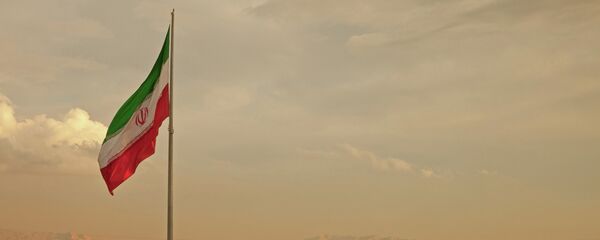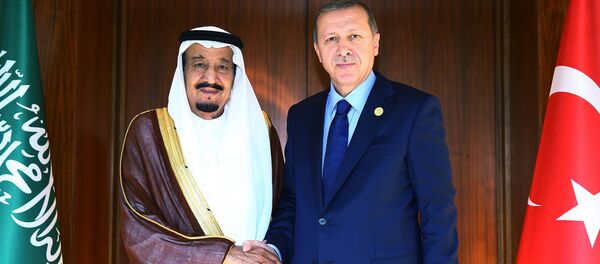On June 5, a number of countries, including Saudi Arabia, the UAE, Bahrain and Egypt, cut diplomatic ties with Qatar and embargoed all sea, air and land traffic to the country, accusing Doha of supporting terrorist groups, particularly the Muslim Brotherhood terrorist movement, as well as of interfering in other countries' domestic affairs. Several other states in the region reduced diplomatic relations with the country.
The Qatari Foreign Ministry rejected the accusations of Doha's interference in other countries' domestic affairs and expressed regret over the decision of the Gulf States to cut off diplomatic ties with it.
The 13-point conditions list was handed over to Doha by the Kuwaiti government which is mediating the dispute. Qatar has 10 days to meet the demands.
In an interview with Sputnik Persian, Sabbah Zanganeh, a political commentator and former adviser to the Iranian foreign minister, suggested that Doha is unlikely to fulfill the requirements.
"These requirements are unacceptable and based on vanity and hypocrisy. Gulf states are mistaken if they believe that political and economic pressure can make Doha cut off ties [with Iran]. This attempt looks like racketeering," he said.
According to him, Saudi allegations against Qatar on sponsoring terrorism are "inappropriate and incapable of resolving the problem."
"None of those countries has the right to immediately impose such a strict economic blockade on a neighboring country. If Riyadh has evidence to its allegations, then it should bring it to an international court for an unbiased examination. If there was confirmed evidence the situation would be different. But this ultimatum proposed by Saudi Arabia poses risks for the kingdom itself," the expert said.
He pointed out that there have numerous allegations that Riyadh provides "political, ideological, financial and military support for terrorists" and sooner or later this information will be "solidified with facts."
Zanganeh stressed that whatever happens Iran will continue to provide humanitarian aid to Qatar, which is one of Tehran’s principles in implementing its foreign policy.
"Even if Saudi Arabia needed humanitarian assistance Iran would come to help. This is an inviolable principle of Tehran’s foreign policy. Meanwhile, following this principle, Iran does not politicize providing assistance to other nations, despite political differences," Zanganeh said.
"[This] an attempt to impose Saudi and UAE will on Qatar…It was evident that the only way to solve this crisis was to recognize that the differences are there, and to find a face-saving solution for both [sides]. The fact that these demands are what they are makes a face-saving solution far more difficult," Dorsey said.
Dorsey emphasized that he doesn't see how Qatar could comply with the demands, since doing so would effectively mean "surrender[ing] its independence."
He noted that he couldn't see "how Qatar could accept these demands without effectively becoming a province of either Saudi Arabia or an emirate of the UAE."





